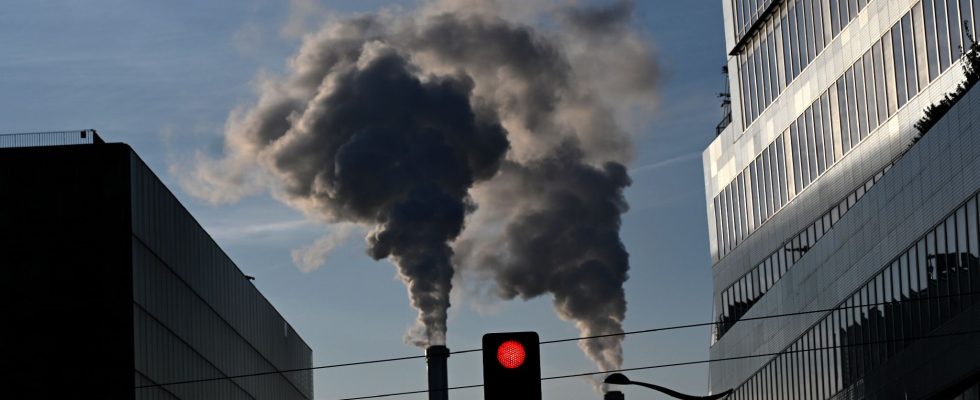The countries of the world must do “much more, now, on all fronts” in the fight against climate change, according to an initial assessment of the implementation of the 2015 Paris agreement, published this Friday, September 8 by the UN, 83 days from COP28. “The world is not on track to achieve the long-term goals of the Paris Agreement,” concludes the text published under the aegis of the United Nations Framework Convention on Climate Change.
To limit global warming to 1.5°C – the most ambitious limit of this historic agreement – CO2 emissions will have to peak before 2025 and achieving carbon neutrality will require the development of renewable energies as well as the exit of all fossil fuels without CO2 capture, it is written. This “assessment of global efforts to implement the Paris Agreement” is a long-awaited document, since it is the first exercise of its kind since 2015 and the Paris COP.
On this occasion, nations pledged to limit the increase in global temperature to well below 2°C compared to pre-industrial levels and to continue their efforts to limit it to 1.5°C. With already nearly 1.2°C of warming, the world is already experiencing extreme events such as heat waves, droughts, floods and mega-fires that have ravaged various regions of the world this summer – the hottest ever measured on the globe. . And they are multiplied with each additional tenth of warming.
“A window that closes quickly”
“There is a window that is rapidly closing to increase ambition and implement existing commitments to limit warming to 1.5°C”, warns the report. The latter once again suggests increasing efforts in favor of finance, first and foremost towards developing countries, for the reduction of emissions or even for adaptation to climate change.
The interest of this new call to order, which draws on the voluminous and alarming scientific reports of the IPCC, is that it will constitute the indisputable basis for the tough negotiations of the 28th UN climate conference, from 30 November to 12 December in the United Arab Emirates. It is announced as the largest COP ever met, with the future of fossil fuels at the heart of the discussions: coal, oil and gas.
Its chairman, Sultan Ahmed al-Jaber, also at the Emirati national oil company, reacted by calling for “tripling renewable energy by 2030, commercializing other carbon-free solutions, such as hydrogen, and developing a system energy free of any fossil fuel without CO2 capture, while eliminating the emissions of the energies that we use today”.
Profound transformations in all sectors
“The success of COP28 will largely depend on how the world reacts to the results of the global stocktake,” said Kaveh Guilanpour, of the C2ES climate research centre. But “the moment of truth will come at the beginning of 2025, when countries will have to put new climate objectives on the table”, as planned by the Paris agreement.
This publication also comes at a time when the leaders of the major G20 nations are meeting in New Delhi, with little hope of making ambitious progress on the climate issue. The greenhouse gas emissions of the United States and Europe have been falling for years, while those of China – the world’s largest emitter – and India continue to increase. “The fundamental principles of the Paris agreement are not yet respected by the 197 parties” but “the burden of response falls on 20 countries” in the first place, the head of the UN Climate told AFP on Thursday , Simon Stiell, to the G20 leaders.
Achieving carbon neutrality will require profound transformations in all sectors and areas, “including the development of renewable energies and the exit from fossil fuels without CO2 capture”, underlines the report. To achieve its goals, humanity must “reduce global greenhouse gas emissions by 43% by 2030 and 60% by 2035 from 2019 levels”, and achieve carbon neutrality. in 2050.
